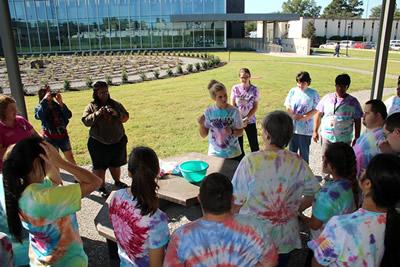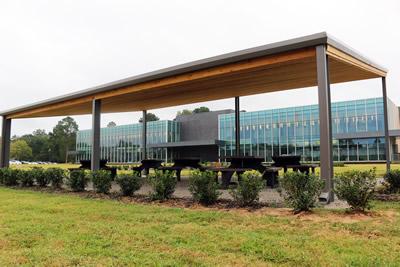
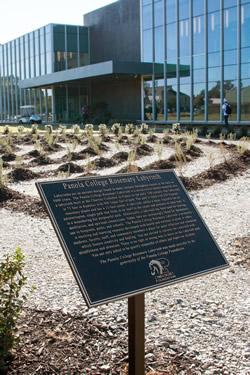 October 19, 2017 - The Panola College Foundation continues to plant seeds for the future of the College and will recognize those efforts by hosting a reception at 2 p.m., Monday, October 30. The Panola County Chamber of Commerce and other community members will be on hand and light refreshments will be served.
October 19, 2017 - The Panola College Foundation continues to plant seeds for the future of the College and will recognize those efforts by hosting a reception at 2 p.m., Monday, October 30. The Panola County Chamber of Commerce and other community members will be on hand and light refreshments will be served.
A Panola College Foundation grant funded the Rosemary Labyrinth created in front of the Health and Natural Sciences Building. That project inspired Health and Natural Sciences faculty and students to spearhead the construction of a new outdoor classroom.
“The outdoor classroom was made possible by the generous contributions of Dede Shipman Applegate and the Panola College nursing students in support of the health sciences,” said Jessica Pace, Director of Institutional Advancement.
The Rosemary Labyrinth is a teaching and learning resource developed with health and wellness in mind. It offers students, faculty, staff, and community members a place for quiet reflection and relaxation, which fosters creativity and healing, according to Dr. Barbara Cordell, retired Dean of Nursing and Health Sciences.
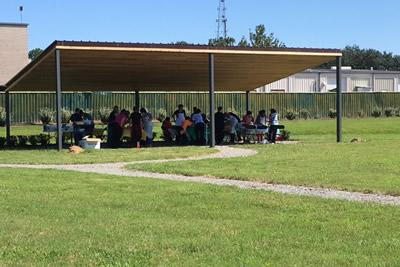
“Historically, a labyrinth has been used for healing, meditation, and spiritual connections,” she said. “Today, they are increasingly found for therapeutic use in hospitals, parks, and schools. You are invited to traverse the Labyrinth with mindfulness and attention. There is no right or wrong way to move on the Labyrinth path. You are only asked to be quietly respectful of others, and to supervise children.”
Labyrinths derive from ancient designs found in many cultures throughout history as far back as 5000 years. The Panola College Rosemary Labyrinth is a seven-circuit pattern modeled after a labyrinth built in the early 13th century at the Chartres Cathedral in France. The Panola College Rosemary Labyrinth is 75 feet in diameter with a 12-foot center and 900 linear feet of path, lined with 450 fragrant rosemary plants. Anchoring the center is a large stone, which was donated by Dr. Cordell.
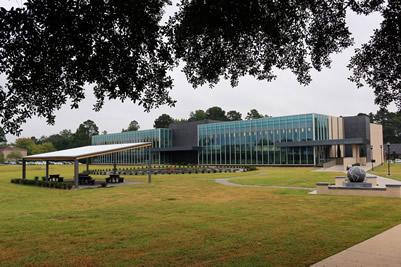
The pavilion-like outdoor classroom, open on all four sides, is outfitted with permanent picnic tables and surrounded by green space for use by the health sciences and other academic departments when an outdoor setting is conducive to learning. Occupational Therapy and other Health Sciences classes are already using the outdoor space.
Pace praised the collaboration between Health Sciences faculty, students and alumni that resulted in the Labyrinth and outdoor classroom.
“It’s so rewarding to realize what can be accomplished when friends of the College work together,” Pace said. “We hope to continue with improvements to the campus green space that will benefit current students, faculty and the community.”
